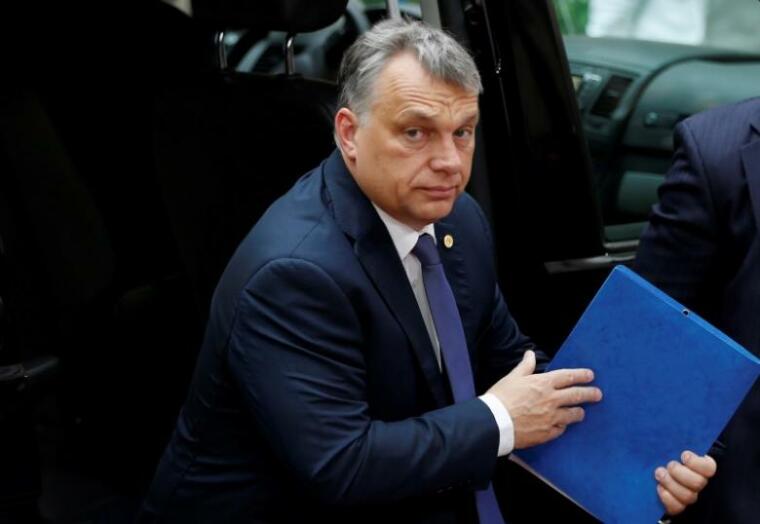Hungary moves to assist persecuted Christians in the Middle East
The government of Hungary has set up a new department and prepared an initial budget of three million euros to help persecuted Christians in the Middle East. It will be working under the Hungarian Ministry for Human Capacities, which deals with matters regarding education and the Church.
Tamás Török, former deputy ambassador to Italy, will be serving as head of the department. The purpose of the department is to gather information and analyze situations that involve Christian persecution. The government already released an initial one million euros as part of its budget, a portion of which will be used to send official delegates to areas identified as trouble spots.

Eduard von Habsburg, the ambassador to the Holy See, stated that Hungary has been covertly helping Christians in the Middle East for years. The new department is the result of those operations. Habsburg revealed that the government aided Christians and other persecuted minorities in obtaining visas.
He also mentioned that the government helped build a Christian school in Erbil, Iraq. He added that this "follows the philosophy that the best way [for the government] to give them a chance is to help them to stay at home, in their countries and to find help there... to help them have the chance of receiving help on the spot."
Hungarian Prime Minister Viktor Orbán recently met with Pope Francis and Christian patriarchs from the Middle East. Orbán decided to set up the new department after the meeting with the pope.
Habsburg said that the creation of the new program was publicized to set an example to other nations in Europe.
"Somehow the idea of defending Christians has acquired a bad taste in Europe, as if it means excluding other people," Habsburg told Crux.
Hungary is one of the few European countries that has a strict policy against granting asylum to refugees. Habsburg stated that dealing with the problems in the Middle East might alleviate the pressure on Hungary to accept more refugees.
"This may not be a solution in itself, but the best strategy is to deal with the situation where people are coming from, which will mean less need for fences in Europe," Habsburg said.
 Christians don't have to affirm transgenderism, but they can’t express that view at work: tribunal
Christians don't have to affirm transgenderism, but they can’t express that view at work: tribunal Archaeology discovery: Medieval Christian prayer beads found on Holy Island
Archaeology discovery: Medieval Christian prayer beads found on Holy Island Presbyterian Church in America votes to leave National Association of Evangelicals
Presbyterian Church in America votes to leave National Association of Evangelicals Over 50 killed in 'vile and satanic' attack at Nigerian church on Pentecost Sunday
Over 50 killed in 'vile and satanic' attack at Nigerian church on Pentecost Sunday Ukrainian Orthodox Church severs ties with Moscow over Patriarch Kirill's support for Putin's war
Ukrainian Orthodox Church severs ties with Moscow over Patriarch Kirill's support for Putin's war Islamic State kills 20 Nigerian Christians as revenge for US airstrike
Islamic State kills 20 Nigerian Christians as revenge for US airstrike Man who served 33 years in prison for murder leads inmates to Christ
Man who served 33 years in prison for murder leads inmates to Christ


 Nigerian student beaten to death, body burned over ‘blasphemous’ WhatsApp message
Nigerian student beaten to death, body burned over ‘blasphemous’ WhatsApp message 'A new low': World reacts after Hong Kong arrests 90-year-old Cardinal Joseph Zen
'A new low': World reacts after Hong Kong arrests 90-year-old Cardinal Joseph Zen Iran sentences Christian man to 10 years in prison for hosting house church worship gathering
Iran sentences Christian man to 10 years in prison for hosting house church worship gathering French Guyana: Pastor shot dead, church set on fire after meeting delegation of Evangelicals
French Guyana: Pastor shot dead, church set on fire after meeting delegation of Evangelicals ‘Talking Jesus’ report finds only 6% of UK adults identify as practicing Christians
‘Talking Jesus’ report finds only 6% of UK adults identify as practicing Christians Mission Eurasia ministry center blown up in Ukraine, hundreds of Bibles destroyed: 'God will provide'
Mission Eurasia ministry center blown up in Ukraine, hundreds of Bibles destroyed: 'God will provide' Church holds service for first time after ISIS desecrated it 8 years ago
Church holds service for first time after ISIS desecrated it 8 years ago Burger King apologizes for 'offensive campaign' using Jesus' words at the Last Supper
Burger King apologizes for 'offensive campaign' using Jesus' words at the Last Supper Uganda: Muslims abduct teacher, burn him inside mosque for praying in Christ’s name
Uganda: Muslims abduct teacher, burn him inside mosque for praying in Christ’s name